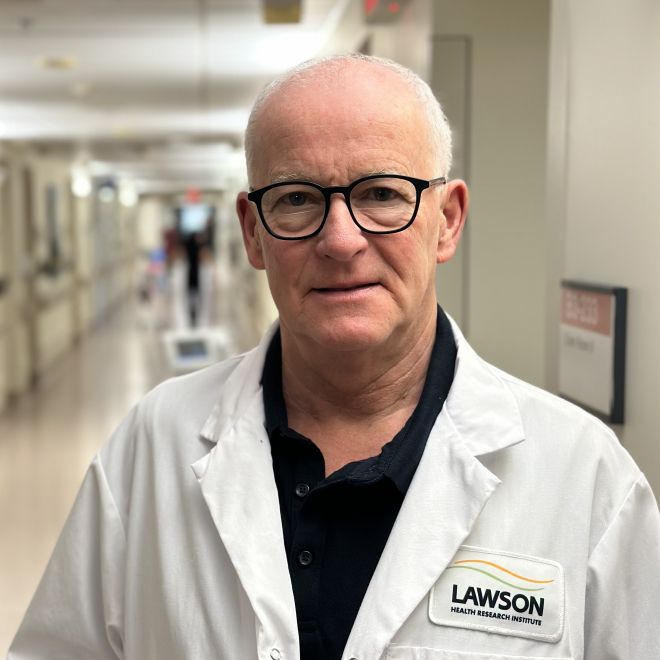
BSc Hons, PhD, MBA, ARM CCM, Dr HS, FCAHS, FRSC
Contact Information
My career has mostly been spent studying how beneficial microbes, especially bacteria, contribute to the health of women and children.
The use of probiotics, as dried or food forms, is designed to help restore and maintain a healthy or homeostatic state. My focus has always been on translating science to human or other life forms (animals, honeybees, fish), though work on mechanisms was also rewarding. I was determined that breakthrough technologies and treatments should benefit everyone, particularly those most in need in developing countries whose access to healthcare and remedies is often limited.
I have been a strong advocate for empowering everyone who has come through out research group. Progress comes from the ideas and talents of these students, fellows, technicians and collaborators and it is our responsibility to mentor and encourage them.
Research areas: Microbiome and probiotics; Women's health; Environmental influences on health; probiotic effects on the urogenital tract, the gut, breast, heart and use of probiotics to detoxify environmental pollutants.
Dr. Gregor Reid is a Distinguished Professor Emeritus of Western University, and Scientist in Human Microbiome and Probiotics at the Lawson Health Research Institute. He retired from laboratory research in 2020 and is no longer taking students.
Dr. Reid’s legacy comes from his focus on beneficial microbes, starting in 1982 when only 12 papers had been published on ‘probiotics’. As of February 2024, this number exceeds 47,000 papers by authors around the world. Dr. Reid's contribution cannot be understated. In 2001 and 2002, he chaired the United Nations - World Health Organization Expert Panel and Working Group on Probiotics that defined the modern term probiotics and set the standard for a field of science and commerce, the latter now exceeding $60 billion per annum.
Evidence for him being one of the world’s foremost experts on probiotics comes in many forms. Along with Canadian Urologist Dr. Andrew Bruce he developed novel probiotic therapies now used by several million people in over 35 countries. He helped acquire Canada’s largest ever donation for microbiology, $7 million for the endowed chair at Lawson. He has held 32 patents and published over 609 peer-reviewed publications in highly prestigious academic journals including Science, Lancet, JAMA, PNAS and various Nature journals. He has been highly sought for his lecturing skills, with over 650 talks in 54 countries. His Google Scholar H factor is 125 with over 61,000 citations as of February 2024. He was ranked the #3 microbiologist in Canada by research.com in 2022.
He has been President of the International Scientific Association for Probiotics and Prebiotics, the leading organization on the science of these areas. His recognitions include: recipient of the Hellmuth Prize, the highest research honour conferred by The University of Western Ontario; the Distinguished Alumni Award presented by New Zealand’s leading institution, Massey University; an Honorary Doctorate in Biology from Orebro University in Sweden; the highest honour of the Canadian Society for Microbiologists for Career Achievement; Western University’s highest honour as Distinguished Professor. He is a member of the Canadian Academy of Health Sciences and the Royal Society of Canada, the latter being an honour bestowed upon Canada’s distinguished scholars, artists and scientists, since the establishment of the society as Canada’s National Academy in 1883. His impact on Complementary and Alternative Medicine has been substantial, in Canada and beyond, illustrated by receipt of the prestigious Dr Rogers Prize.
The expansion of beneficial microbes to One Health illustrates the importance of pioneers like him, who so early on and long before the Human Microbiome Project, recognized the importance of these organisms. His commitment to stewardship and excellence in appropriately documenting probiotics and in helping to define fermented foods and prebiotics, and differentiate them from probiotics, is recognized the world over.
Dr. Reid was instrumental in the establishment of Western Heads East (WHE), an experiential learning program based out of Western University. The program, led by Bob Gough, launched probiotic yogurt in rural Tanzanian communities in 2004 to help address the malnutrition and HIV/AIDS crises in the continent. It was recognized by the awarding of the AUCC Scotiabank Prize for Internationalization in 2010. The program expanded beyond HIV recipients to reach over 260,000 beneficiaries in Uganda, Tanzania and Kenya. This was made possible by funding from the Canadian International Food Security Research Fund and the creation of a novel sachet by Yoba-for-Life, a Dutch not-for-profit foundation. The sachet, costing under $1, contains two bacterial strains that ferment up to 100L of probiotic-rich yogurt or cereal or fruit. Yoba-for-Life continues to bring sachets to Africa, and in 2024, The Gregor Reid Award for Outstanding Scholars in Developing Nations was established by ISAPP to encourage young researchers to translate probiotics into tangible benefits for their countries.
Dr. Reid's sphere of influence has widened through efforts to reduce the problem of honeybee colony collapse that endangers the world's food supply. The creation of a probiotic intervention to boost the insect's defenses and fight pathogens as well as offset the damage done by pesticides, has implications for beekeeping in North America and around the world. His final PhD student, Brendan Daisley is now pioneering this work at the University of Guelph.
Though officially retired, Professor Reid has published a book, “Probiotics: A story about hope,” which reached #1 on Amazon for women’s health, and he continues to support his successor, Dr. Jeremy Burton, and students doing outstanding work through the lab at St. Joseph’s Hospital.
Numerous collaborators around the world.
Read it here!






